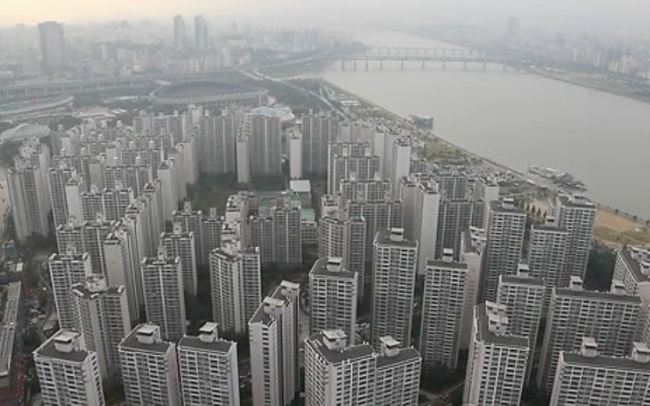South Korea's chief economic policymaker said Friday that the government would take stronger measures if home prices do not stabilize.
On Thursday, South Korea's government said it will levy tougher taxes than originally planned as it strives to rein in soaring housing prices.
Over the past year, the Moon Jae-in government has unveiled a series of measures to curb housing prices that have had little impact on the market.
 |
(Yonhap) |
Alarmed by the fastest housing price gains in a decade, Seoul said it would further raise the tax burden on owners of high-priced houses and multiple homes, and seek to raise the taxable rate of a property, which is now 80 percent of the government-set value. The rate should climb to 100 percent by 2022, compared with the originally proposed 90 percent by 2020.
In South Korea, the government usually taxes land and homes based on its annual assessment value instead of the actual market value.
"I think the new measures will help stabilize housing prices," Finance Minister Kim Dong-yeon said in a radio interview.
The government will take quick and firm measures, if the latest steps are not strong enough to curb rising home prices, he added.
Some critics say the measures represent a "tax bomb" to conceal the Moon government's policy failures, but the policymaker pointed out that the government just advanced the time table for the tax hike.
The comprehensive real estate tax, first introduced in 2005 under late President Roh Moo-hyun, has long been controversial here. Taxation on owners of expensive houses and owners of multiple homes during the Roh administration faced a strong backlash, which in turn led to a drop in the approval rating of the left-of-center government.
The conservative Lee Myung-bak government eased the tax scheme. But the liberal Moon Jae-in government, which shares most of the economic policies of the Roh administration, has vowed to impose heavy taxes on owners of high-priced homes and multiple homes, which it claims is the main cause of soaring home prices in Asia's fourth-largest economy.
Despite a series of measures to rein in soaring prices, apartment prices in the affluent Gangnam district and some other neighborhoods have jumped on hopes of reconstruction projects moving forward and ample liquidity circulating in the economy.
The Bank of Korea's eight rounds of rate cuts since 2012 have helped send home prices and household debt to record levels as more people take out loans to buy homes. (Yonhap)








